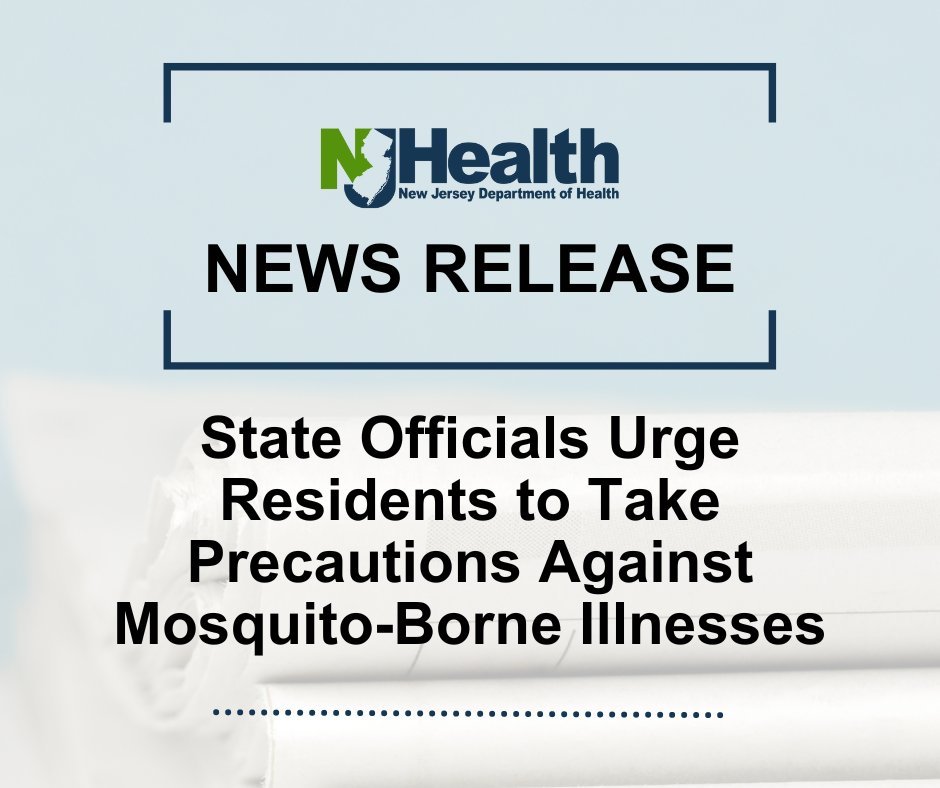
New Jersey Reports Two West Nile Virus Deaths, Urges Precautions Against Mosquito-Borne Illnesses
As of late August 2024, New Jersey health officials are sounding the alarm following the recent deaths of two residents from West Nile virus (WNV). The state has recorded a total of eight WNV cases this year, with seven leading to severe neurological complications such as encephalitis and meningitis. The two tragic deaths occurred in Cumberland and Mercer counties, both involving older adults, underscoring the heightened vulnerability of this age group to mosquito-borne illnesses.
The New Jersey Department of Health (NJDOH) and the New Jersey Department of Environmental Protection (NJDEP) are urging residents to take immediate precautions to protect themselves and their families from mosquito bites, the primary mode of transmission for WNV and other mosquito-borne diseases like Eastern Equine Encephalitis (EEE). Simple measures such as using insect repellent, wearing long sleeves and pants, and avoiding outdoor activities during dawn and dusk, when mosquitoes are most active, can significantly reduce the risk of infection.
This year's WNV season has been particularly concerning, with the first human case reported in early July, weeks earlier than usual. By now, WNV has been detected in 702 mosquito pools across all New Jersey counties, except Cumberland, indicating that the virus is more widespread and potentially more dangerous than in previous years. The state typically sees a spike in mosquito-borne illnesses from mid-August to late September, but with changing weather patterns, the season could extend into October and beyond.
Also Read:- Earthquake Shakes Bay of Bengal with 5.1 Magnitude Today
- Notre Dame Triumphs Over Texas A&M in Thrilling Week 1 Clash
In addition to WNV, New Jersey reported its first human case of EEE this year, a rare but often deadly virus. The case involved a young individual from Atlantic County who was hospitalized but has since been discharged. EEE has also been detected in mosquitoes and horses across several counties, signaling the ongoing threat these viruses pose to both humans and animals.
State officials emphasize the importance of mosquito control efforts at both the community and individual levels. Residents are encouraged to eliminate standing water around their homes, a common breeding ground for mosquitoes. This includes regularly emptying water from containers such as flowerpots, birdbaths, and pet dishes, as well as ensuring that gutters and other outdoor areas are free of debris that can trap water.
With September marking the 25th anniversary of the emergence of WNV in the United States, the current situation in New Jersey serves as a stark reminder of the persistent threat posed by mosquito-borne diseases. While most people infected with WNV or EEE will experience mild symptoms, the risk of severe illness and death is particularly high for older adults and those with weakened immune systems.
New Jersey's health and environmental agencies are working closely with local mosquito control programs to mitigate the spread of these diseases. However, with the peak of mosquito season still underway, the public's vigilance and proactive measures are crucial in preventing further cases and fatalities.
Residents experiencing symptoms such as fever, severe headache, neck stiffness, or confusion after a mosquito bite should seek medical attention promptly, as early detection and treatment are key to managing these infections. As the state continues to monitor and respond to the situation, staying informed and taking preventive steps can help protect both individual and public health.
Read More:

0 Comments